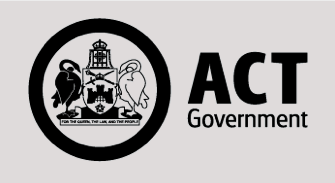The Witness Assistance Service
What is the Witness Assistance Service?
The Witness Assistance Service (WAS) is part of the ACT DPP. The WAS is staffed by witness liaison officers.
The role of the WAS is to assist the Director:
- in the Director’s dealings with victims of crime and witnesses;
- to meet the Director’s obligations under the Victims of Crime Act 1994;
- to inform victims and witnesses of their rights and responsibilities in dealing with the ACT DPP and the criminal justice system; and
- to manage the expectations of victims and witnesses in their dealings with the ACT DPP and the criminal justice system.
Broadly, the WAS acts as a bridge between prosecutors and vulnerable witnesses and their family members.
The WAS works with victims, not for victims. It is not part of the role of the WAS:
- to provide counselling or other therapeutic supports;
- to “represent” victims; or
- to seek to influence prosecution decisions or legal outcomes.
The WAS assists in matters based on the nature of the charges, the vulnerability of the witness and the nature of the proceedings. The WAS provides support and information to vulnerable witnesses to ensure they are able to fully participate in court proceedings.
A number of other agencies are also responsible for providing support to witnesses in the criminal justice system. The WAS liaises with those other agencies to ensure as much as possible that the needs of witnesses are met. In particular the WAS also provides referrals for witnesses to other agencies for ongoing support such as counselling and assistance with applications for financial assistance.
Services provided for witnesses
The Witness Assistance Service assists witnesses in a number of ways, including:
- liaising with the prosecutor handling the matter;
- organising and attending meetings (including witness proofings with witnesses and prosecutors);
- providing information about victims' rights and special provisions for giving evidence;
- assisting in preparing witnesses for court;
- providing updates on court;
- providing information about the sentencing process and Victim Impact Statements (VIS) and assisting with preparing the VIS;
- providing information about other services that may be available;
- providing information about the legal process;
- discussing questions and concerns.
Getting ready for court
The Witness Assistance Service can help witnesses get ready for court by:
- helping witnesses understand their role and what to expect at court;
- liaising with the prosecutor about witnesses’ needs or concerns;
- arranging a visit to court and other facilities to become familiar with the environment;
- preparing witnesses, including children, for giving evidence in court;
- arranging support for witnesses who are giving evidence in court;
- preparing people for court outcomes, such as a verdict of not guilty.
After the trial or hearing
After the trial or hearing the WAS can assist in explaining the outcome, including the verdict and sentence.
If the accused has been found guilty, or pleads guilty, the WAS can provide information about Victim Impact Statements (VIS) and the sentencing process, and can assist with preparing the VIS if required.
After sentencing, the WAS can give information about the Victims Register.
The WAS can assist the following witnesses:
Because of resource constraints, the WAS cannot assist every witness who may benefit from assistance. Priority is given to vulnerable witnesses, including:
- victims of sexual offences;
- victims in family violence proceedings;
- children and young people under 18 years;
- witnesses and family members where a crime has resulted in death;
- victims of serious violent offences;
- witnesses with mental health issues;
- witnesses with physical and developmental disabilities.
How the WAS communicates
The WAS strives to deliver information electronically, through the use of electronic court updates (by email or SMS of other mobile phone applications) and website based information.
Other roles
The WAS also liaises with external agencies such as the police, the Domestic Violence Crisis Service, Canberra Rape Crisis Service and Victim Support ACT to ensure that vulnerable witnesses receive the support they require and the information they need.
In particular, while the WAS will generally not be able to support witnesses at court, they will liaise with other agencies to provide such support.
The Canberra Rape Crisis Centre
Phone: (02) 6247 2525 (24 hours)
www.crcc.org.au
Victim Support ACT
www.hrc.act.gov.au/victim-support
Phone: 1800 822 272 or (02) 6205 2026
The Domestic Violence Crisis Service
www.dvcs.org.au
Phone: (02) 62800 900 (24hours)
You can contact the WAS by telephoning 02 6207 5399.

